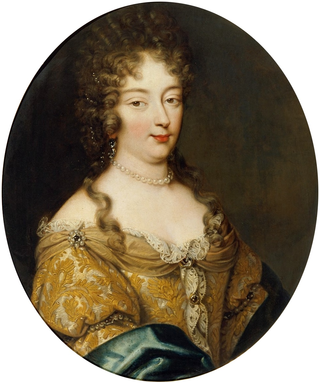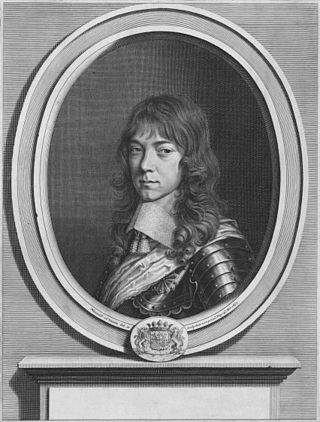La Tour (as distinct from Latour) is a surname. Notable people with the surname include:

Bouillon is a city and municipality of Wallonia located in the province of Luxembourg in the Ardennes, Belgium.
La Tour may refer to:

Henri de La Tour d'Auvergne was a Protestant member of the powerful House of La Tour d'Auvergne, the Prince of Sedan and a marshal of France.
Tour or Tours may refer to:
Henri is the French form of the masculine given name Henry, also in Estonian, Finnish, German and Luxembourgish.
Latour may refer to:
The House of La Tour d'Auvergne was a noble French dynasty. Its senior branch, extinct in 1501, held two of the last large fiefs acquired by the French crown, the counties of Auvergne and Boulogne, for about half a century. Its cadet branch, extinct in 1802, ruled the duchy of Bouillon in the Southern Netherlands from 1594, and held the dukedoms of Albret and Château-Thierry in the peerage of France since 1660. The name was also borne by Philippe d'Auvergne, an alleged collateral of the original Counts of Auvergne, and was adopted by the famous soldier Théophile Corret de la Tour d'Auvergne, who descended from an illegitimate line of the family.
Baillet is a surname. Notable people with the surname include:
The Count of Évreux was a French noble title and was named for the county of Évreux in Normandy. It was successively used by the Norman dynasty, the Montfort-l'Amaury family, the Capetians as well as the House of La Tour d'Auvergne. The title is today used by Prince Michel, Count of Évreux, a member of the House of Orléans.
Boissieu is a French proper name originating in middle and eastern France, probably meaning "woody place".

Olympia Mancini, Countess of Soissons was the second-eldest of the five celebrated Mancini sisters, who along with two of their female Martinozzi cousins, were known at the court of King Louis XIV of France as the Mazarinettes because their uncle was Louis XIV's chief minister, Cardinal Mazarin. Olympia was later to become the mother of the famous Austrian general Prince Eugene of Savoy. She also involved herself in various court intrigues including the notorious Affair of the Poisons, which led to her expulsion from France.
Godefroy is a surname of Old French origin, and originally a given name, cognate with Geoffrey/Geoffroy/Jeffrey/Jeffries, Godfrey, Gottfried, etc.
de Fay is a French surname. Notable people with the surname include:

Godefroy Maurice de La Tour d'Auvergne, Duke of Bouillon was a French nobleman and member of the House of La Tour d'Auvergne, one of the most important families in France at the time. He married Marie Anne Mancini, niece of Cardinal Mazarin and had seven children.

The Principality of Sedan was an independent Protestant state centered on the Château de Sedan in the Ardennes. It was ruled by the Prince of Sedan, who belonged to the noble La Marck and La Tour d'Auvergne families. The Princes of Sedan asserted and acquired recognition of their sovereignty gradually between the 1520s and 1580s by means of adopting the princely title, minting coin, legislating and signing treaties. In 1641, during the Thirty Years' War, the Prince submitted to France and his principality was occupied the following year. In 1651 the reduced principality was exchanged for other lands in France and was annexed to the crown.
Turenne is both a surname, and the seat of various titles of nobility, which therefore end with "de Turenne".
Turenne (1611–1675) was the French military leader Henri de la Tour d'Auvergne, Vicomte de Turenne.
Henri de la Tour can refer to:
Delatour is a French surname meaning "of the tower". Notable people with the surname include:
The Luxembourg campaigns were two military campaigns by the Dutch Republic and the Duchy of Bouillon against the Spanish Southern Netherlands during the Eighty Years' War in 1593 and 1595. The first was undertaken by a Dutch States Army commanded by Philip of Nassau to the Duchy of Luxembourg in early 1593, with the aim of distracting the Spanish Army of Flanders to a different part of the Habsburg Netherlands, create confusion and block the importation of new pro-Spanish troops to the Low Countries via the Spanish Road. Other goals were dealing economic damage to Spain, and supporting the Protestant claimant to the French throne Henry of Navarre and the Protestant prince of Sedan and duke of Bouillon, Henry de La Tour d'Auvergne.